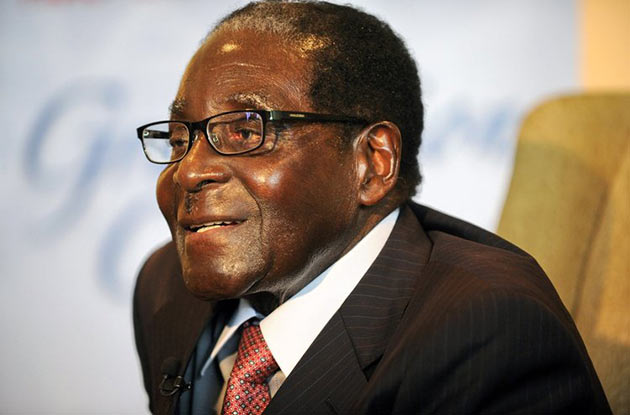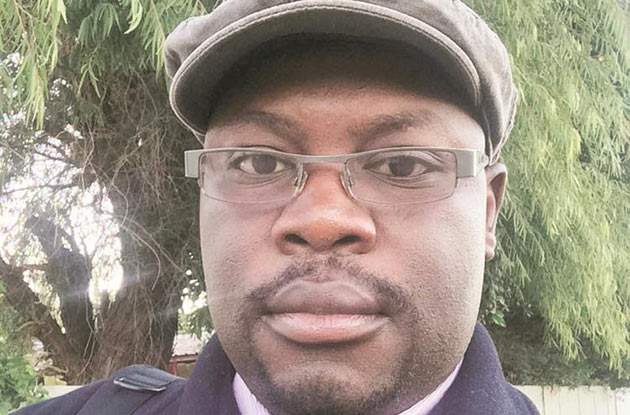View from the Diaspora: Zanu-PF internal contradictions natural


President Mugabe is the one centre of power in zanu-pf and Government
Nick Mangwana
When this piece was shaping up in the head of the columnist, it was about the South African local government electoral results and lessons for Zanu-PF. It was about how the ANC comrades had used the youths to haunt certain leaders from leadership positions and establish another leadership which
suited their ends. It was about why political actors find it easy to abuse the youths to achieve their personal political ends.
The next point was that once the youth have tested power they would want to maintain their status as kingmakers and how the now powerful leaders would always want to maintain checks on that power as they realise that if this power would remain unfettered then the leader only serves at the pleasure of these youths now and if they resist another king will be made as happened in the past.
The youth will also forget that it is their duty to fight a war, but it is not their responsibility to declare it.
So, that is how this week’s piece was going to go. But as this instalment is being written from Zimbabwe, there have been a lot of interactions with party comrades who have been asking this columnist to pin his colours to a factional mast. Dismissively laughing the question off was no longer doing it. They want a declaration. But the pressure has been withstood and the comrades have been asked to read the response in today’s Herald.
So, comrades, here it is: In politics every adult is a voter. Whether they choose to exercise that power or not does not matter. The point is everyone has a preference. The preference might be an individual or a position with which they find symmetry or any such points of congruency or simply an unexplained partiality, but at the end of the day everyone has one. We can all pretend that we don’t have such, but the reality is different. Zimbabwe Electoral Commission (ZEC) officials are voters. So they have a preference. They are entitled to it, but as professionals cannot declare it. Even judges and magistrates are registered voters and when the moment comes to cast a vote they will vote for someone, confidentially expressing their preferences.
So we have to face the fact that in politics everyone has a preferred candidate. This is also the reason why we have primary elections, leadership elections within the party and congresses. And it is the height of political dishonesty for anyone to ask a political player not to have a preference when impartial adjudicators such as judges and ZEC officials have one.
It’s all political speak for a politically active individual to declare not having a preference whether now or in 2023. But in the realm of our politics, the easiest and most politically correct answer is for one to say that they stand behind the President, the one centre of power.
The discussion will be over. But let’s face it, that was not the question and therefore that answer is a convenient political balderdash. But since it is the most pragmatic and risk free response that is all that is going to be given. So ask not the question again, and be told no lies.
It is a Utopian political illusion to believe within the context of current discourse of internal party contestations that there is someone without some political preference. But the worst nonsensical request is to ask an individual let alone politician to declare that they do not have an ambition for career progression. Wouldn’t being ambitious mean that one is driven or is it that ambition should atrophy when someone reaches a certain level in their career? And if they make such a declaration that they have no desire for career progression, are they not allowed to change their minds tomorrow? Those who follow British politics should speak to one Michael Gove.
So ambitions and preferences are not the problem. Now that point has been made, let’s face it, even the most cohesive and fluid political machines like Zanu-PF have internal contradictions therefore as already established; factions.
Like-minded people coalesce and form a party. Like-minded people in a party aggregate and that is what becomes a faction.
There is no party without any sub-groups. It is only when they become destructive to the main agenda that they become a problem. And those in Zanu-PF have become toxic, making both the declaration of a preference divisive and the declaration of a natural ambition perceived as destructive.
Factions or contradictions in Zanu-PF do not normally affect the party’s election machine. They affect delivery of the electoral mandates. And sadly they are affecting delivery of economic outcomes right now. It is wrong for people to cluster together with a view to enhancing their chances of achieving their ambitious goals much to the detriment of the common good and the bigger group.
When these ambitions or preferences become damaging to the party and collaterally the country then it is time to look at their root cause and deal with it.
While no political grouping is a homogeneous entity.
It is always made up of disparate interests. And when these interests clash there is likely to be friction.
The friction contradictions in Zanu-PF turning into full blown conflict affecting the delivery of the policy agenda. That is now self-defeating.
Factional preferences have become destructive, Zanu-PF fissures are now beyond usual internal contestations. They are fissures which have turned into faultlines.
The existence of a distinct bloc within a party driven by a specific political agenda which may include the promotion of or the blocking of the ascendancy to a powerful position of an individual has brought the ANC to a position where its incumbency is being heavily tested. It is the existence of these said blocs that is also affecting the drive to court investment, implementation of policy programmes and the fight against corruption by a Zanu-PF-led Government. When every Government programme is being interpreted in accordance with a factional tendency then it’s time something is done. But that something is not expelling people.
That has already proved not to have any efficacy. It is the foundation of these contradictions that might need dealing with.
These factions, which are not factions of principles, but mere factions of interests are just playing power manipulation roles. This is because it appears these factions seem to care more about power and less about policy.
The only known policy related matter is one faction claims to be Zero-tolerant towards corruption and accuses its rival of harbouring criminals and having an agenda to protect ill-gotten financial interests through State power. Whatever the merits or lack of in this accusation, it is clear that power is being defined as an instrument for safeguarding personal interests rather than a contrivance for socio-economic progress of common people.
Parties mobilise membership growth. But because of these competing interests within the party, we have once again a scenario where people are poring over rule books looking for reasons and excuses to either expel each other or exclude others.
It should always be remembered that every single member excluded has someone emotionally and otherwise invested in them who will take this decision personally.
This brings further fissures in the party and affect cohesion.
For years and years the Zanu-PF narrative has been to deny that factions existed within the party. There was always an effort to present a unified front to the public.
The proverbial washing of dirty undergarments in public was always avoided. But not anymore. People are mobilised to present to them the dirty silks, not even to wash them. But to just share the stink with them and hopefully humiliate one or two in the process.
So right now the existence of factions has been established. What is probably true is that some of those accused of leading them are possibly not actively doing so, but people are simply gravitating and aggregating around them as iron filings to a magnet.
Maybe the magnet is just there and not actively seeking the filings, but its pulling characteristic is doing so. While this point is important, it is more important to note that factions exist in Zanu-PF and they have reached destructive levels which are affecting the whole country.
It is politically safe to deny the existence of intra-party conflict, but when leadership is berated in public like we have seen recently, and expulsions are a monthly occurrence, maybe it’s a sign to now stop insulting the intelligence of Zimbabweans by making this admission. It has been said before and let it be said again; the electoral fortunes of Zanu-PF and the socio-economic fortunes of Zimbabwe now depend on how Zanu-PF handles its internal contradictions.
The politics in the Party should be about policy and not about votes only. But if the truth be told with unrestrained candour, factional preferences are trumping policy implementation. That is causing economic distress on the nation and culturing a fertile ground for patronage and through that, corruption. A serious corruption accusation is always seen through a factional prism or the perpetrator takes refuge under the umbrella of a faction. One hopes they don’t even fund it with filthy lucre.
We should not fight to gain or retain power for the sake of it or where the main benefit is to those now holding the instruments of patronage.
Factions should be about political genre and not about personalities.










Comments